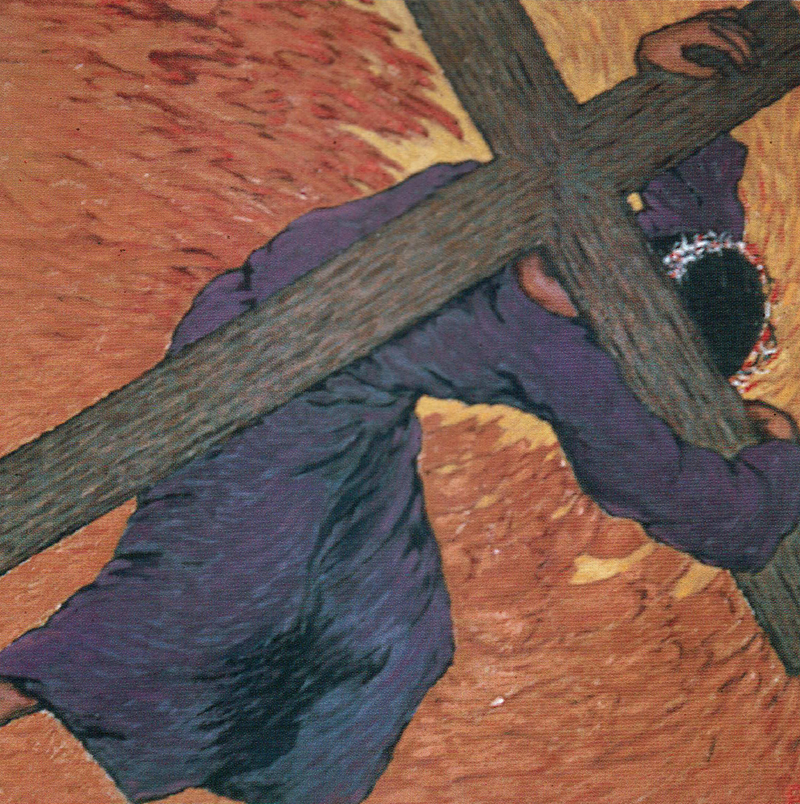
To Calvary
Frank Wesley, 1923-2002
My dear friends,
Good Friday holds profound significance in the Christian tradition as it commemorates the crucifixion and death of Jesus Christ at Calvary. It is a pivotal moment in Christianity, symbolizing the ultimate sacrifice of Jesus for the sins of humanity. This day is observed during Holy Week as part of the Paschal Triduum on the Friday preceding Easter Sunday. The somber remembrance of Jesus' suffering and death on the cross reflects deep themes of sacrifice, redemption, and the transformative power of love and forgiveness.
The darkness of Good Friday, while a representation of sorrow and mourning over the suffering of Jesus, also casts a powerful light on our paths of spiritual growth in several ways:
- Sacrifice and Altruism: Jesus' willingness to endure suffering for the sake of others is a profound example of ultimate altruism and compassion. This selfless act can inspire us to cultivate a spirit of generosity and kindness in our lives, reminding us of the importance of putting others' needs before our own in the spirit of the Bodhisattva path, which emphasizes working tirelessly for the enlightenment of all beings.
- Transformation Through Suffering: The suffering endured by Jesus and the subsequent triumph of resurrection symbolize the potential for transformation through our own trials. In the Tibetan Lam Rim tradition, challenges and suffering are often seen as opportunities for growth, purification, and deepening our spiritual practice. Good Friday reminds us that even in moments of great darkness, there is hope for renewal and enlightenment.
- The Power of Forgiveness: On the cross, Jesus expressed forgiveness towards those who wronged him. This profound act of forgiveness teaches us the importance of letting go of anger and resentment towards ourselves and others. In both Christian and Buddhist teachings, forgiveness is a key step in healing and spiritual development, helping us to cultivate a heart of compassion and empathy.
- Embracing Mortality: The stark reality of Jesus' death invites contemplation on our own mortality. Recognizing the impermanence of life is central to many spiritual traditions, including Buddhism, where awareness of death encourages us to live more meaningful, compassionate lives. Good Friday can serve as a reminder to cherish each moment and to live in a way that reflects our deepest values and aspirations.
- The Silence and Stillness of Contemplation: The solemnity of Good Friday encourages a reflective, contemplative state of mind. This aligns with the practice of meditation in the higher training of meditative concentration, where silence and stillness offer a path to deeper understanding and realization of our true nature and the nature of reality, including the perception of emptiness.
Good Friday, therefore, is not just a day of mourning but also a powerful catalyst for spiritual reflection and growth. It invites us to ponder deeply on the themes of sacrifice, transformation, forgiveness, mortality, and the pursuit of a compassionate, altruistic life, bridging the teachings of Christianity with the path of the Bodhisattva for seekers of all traditions.